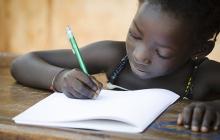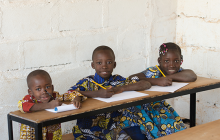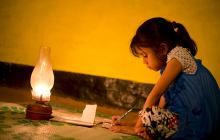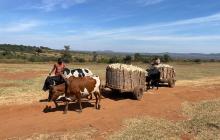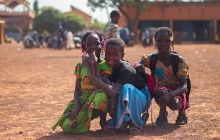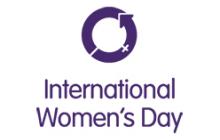For millions of children in developing countries, education can be the key to improving their lives and communities. But access to education for children, and to training and technical assistance for teachers and governments, is a struggle for many.
Research and application demonstrate that programs can be successful in fostering literacy, numeracy, and critical thinking; developing teachers; and increasing educational opportunities for at-risk children and youth.
AIR conducts research and provides technical assistance in international education from early childhood through higher education, with special focus on foundational learning, standards and assessment, and creating safe and supportive learning environments. AIR also supports international studies of education, providing global trend data on student achievement.
Our Work
Early Childhood and Child Development
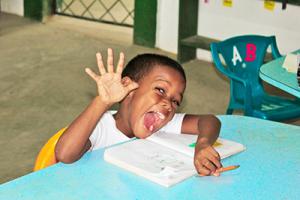
In low- and middle-income countries, both children’s survival rates and access to primary education have both increased dramatically. Attention is now turning to improving children’s early development, and their preparation to enter primary school on time and ready to learn.
AIR's work focuses on early stimulation and nutrition, quality of early care and education, and the use of innovative strategies to promote school readiness in places where comprehensive pre-primary education is largely unavailable.
Learn more about AIR’s work in international early childhood and child development.
International Comparisons in Education
International comparisons of statistical data on national elementary, secondary, and higher education school systems provide feedback on how education systems have improved over time, how equitable they are, and how students compare to their peers around the world.
AIR works extensively with several international studies of education, including the Progress in International Reading Literacy Study (PIRLS); the Program for the International Assessment of Adult Competencies (PIAAC); the Program for International Student Assessment (PISA); the Trends in International Mathematics and Science Study (TIMSS); and the Teaching and Learning International Survey (TALIS).
Learn more about AIR’s work in international comparisons in education.
International Foundational Learning
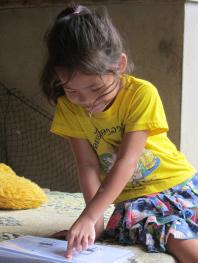
The world is facing a global learning poverty crisis—one in which about 70% of 10 year old children in low- and middle-income countries cannot read and understand a simple story (this has increased from 53% pre- COVID-19 pandemic).
AIR’s approach to improving learning outcomes across Africa, Asia, and the Latin America and Caribbean regions relies on the integrative cycle of research, program design, technical assistance, and capacity building. Main areas of emphasis include multilingual reading, mother tongue-based education, literacy and numeracy assessments, and community participation.
Learn more about AIR’s work in international foundational learning.
International Standards and Assessment
AIR assists governments in developing and implementing national and regional educational assessment systems for monitoring and supporting quality of education. This is a key investment towards reaching a country’s educational targets.
We work with government counterparts and partner organizations to develop student learning performance standards and targets; design and develop cost-effective, technology-enhanced, formative and summative assessments aligned to learning standards; collect and analyze data on student learning; and support use of data to improve educational outcomes.
Learn more about AIR’s work in international standards and assessment.
Safe and Supportive Learning Environments
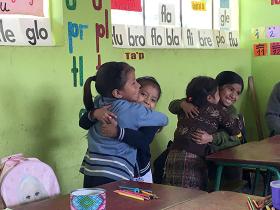
AIR is committed to increasing the effectiveness of education at all levels through the provision of safe, supportive, and equitable learning environments. Our rigorous, state-of-the-art research and evaluation work provides important evidence for education policymakers and practitioners to use when answering crucial questions about program implementation, challenges, and solutions.
We provide technical assistance at national, subnational, and program levels to help education system stakeholders address challenges and transform schools. AIR’s areas of expertise include conditions for teaching and learning, school safety, social and emotional learning, and multitiered systems of support.
Learn more about AIR’s work supporting safe and supportive learning environments.


